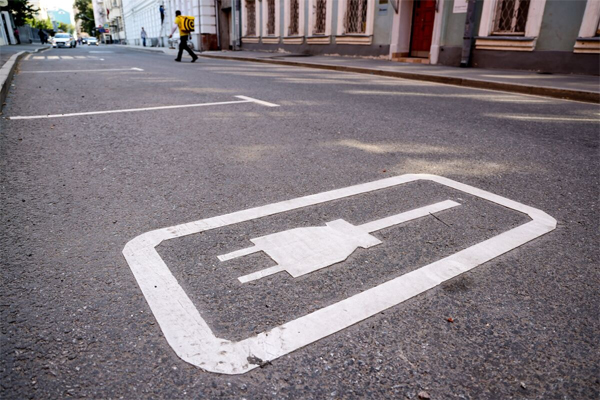- Seeks to counter China stronghold on green energy supply chain
- EC working on a consortium to supply e-buses to Latin America

Jorge Valero, bloomberg
BRUSSELS
EnergiesNet.com 07 14 2022
European Union officials are working on a plan that can help provide electric buses to Latin American nations in exchange for lithium supplies, as they seek to curtail the bloc’s reliance on China for this critical raw material.
The European Commission, the bloc’s executive arm, is in talks with automakers and governments to create a private sector consortium that can supply e-buses to Latin America, according to people familiar with the plan who did not want to be named as the discussions are private. In return, this will facilitate access to lithium deposits for the EU firms in these resource-rich countries, they said.
The initiative is part of a broader push among western economies to ringfence their core industries and counter China, which has a stronghold over the green energy supply chain. For the Latin American countries, the deal will expedite a switch to cleaner public transport and curb carbon emissions.
Read More: Why the Fight for ‘Critical Minerals’ Is Heating Up: QuickTake
The quid pro quo pact is part of the EU’s 300-billion-euro ($335 billion) plan called the Global Gateway, the people said. It aims “to boost smart, clean and secure links in digital, energy and transport sectors” globally, according to the commission’s website.
The EU has been “working intensively with its Latin American and Caribbean partners on an Investment Agenda,” a spokesperson for the commission said in an email, without sharing specific details. “The partnerships allow both sides to advance trade and investments into secure, sustainable and resilient raw materials value chains.”
The 27-nation bloc plans to invest around 10 billion euros in projects across Latin America and the Caribbean, with additional contributions coming from the Member States bilaterally and the private sector.
Read More: EU Nears Critical-Material Deals With Argentina, Chile
EU’s ambitious green goals are dependent on obtaining a large amount of minerals, including lithium whose demand is projected to surge 12 times by 2030 and 20 times by 2050.
“We have to act now and with the highest speed,” said Bernd Schäfer, chief executive officer of EIT RawMaterials that is co-funded by the EU. “It’s a make or break moment.”
Largest Reserves
The commission signed a pact with Argentina last month for developing “innovative and sustainable and responsible raw materials value chain projects.” It is expected to sign a similar agreement with Chile next week, two of the people familiar said. Chile and Argentina are among the countries with largest lithium reserves on the planet.
Europe is not the only one racing to tie-in raw materials for key sectors such as electric vehicles and clean energy.
A bill was introduced in the US this week to create a national strategy for securing supply chains of critical minerals from the Democratic Republic of Congo. Another US government program has given a $9.2 billion loan to Ford Motor Co. for building battery factories, in a bid to help local firms catch up to China in green technologies.
Read More: Ford Gets $9.2 Billion to Help US Catch Up With China’s EV Tech
The commission is still discussing the details of the plan with member states and the industry, the people said. This includes how the European companies could benefit from being part of the consortium.
While the whole arrangement could take years to be finalized, the demand in the Latin American region — estimated at about 10,000 e-buses over the next few years — is large enough to stoke interest among European automakers, according to the people familiar.
Brussels Meeting
Leaders from the EU, Latin American and Caribbean nations are expected to discuss Global Gateway investment projects in Brussels early next week. Business leaders and officials will also hold a roundtable in the city on critical raw materials and mobility on Monday.
“It is not about buying lithium, but about sharing a resource that is scarce and that is strategic for sustainable mobility,” Xiana Mendez, Spain’s junior trade minister said in an interview.
She added that EU intends to set up manufacturing in these resource-rich countries and not just extract minerals from them.
“The difficulty would be for EU companies to cooperate,” she added. “It would be the first time something like this has been done.”
— With James Attwood, Jonathan Gilbert, and Akshat Rathi
bloomberg.com 07 13 2023











